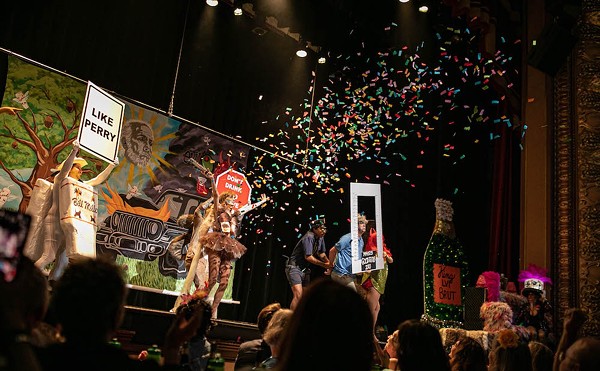I had some assumptions about historical fiction before I even picked up a copy of The Whiskey Rebels by San Antonio author David Liss — and some of them, it turns out, were not unfounded. The story is set in post-Revolution United States, and the main characters, a down-on-his-luck ex-spy named Ethan Saunders and an American gentlewoman turned “rebel,” come across as a little wooden at first. Liss’s language, what he jokingly refers to as “18th-century light” (which I think is quite accurate) drifts between a vague, almost neutral English in the narrative to more proper antiquated dialogue. The introductions feel perfunctory: a history of things leading up to the important events.
And, indeed, the good stuff soon follows when a couple of rough customers, who rival the brutish cowboys and mercenaries of Cormac McCarthy’s brutal borderlands, show up, thickening the plot and creating suspense and fear. Reynolds and Tindall are delicious characters, perhaps because their psychology rings true, and they bring flesh to the story, not to mention a quicker narrative pace. Once we see the main characters in action, especially Joan Maycott, they become real people occupying a place and a time, rather than the other way around.
One thing that I wasn’t expecting is the novel’s frequent laugh-out-loud humor. When I asked Liss about this, he told me his humor is one of the things his publisher likes, and it’s unusual in a historical novel (which doesn’t disabuse me of my preconception that historical fiction is often dry and wooden).
Liss’s research for his first historical novel, 2000’s A Conspiracy of Paper, confirmed this. He read a lot of historical fiction to get a sense of the genre, he said, and came away with the feeling that it’s fairly humorless. But when he was writing his book, his characters kept saying or doing things that he found amusing. In an attempt to stay “true” to the genre, he cut out these episodes, but he finally decided that he was going to write how he was going to write, so the comic scenes and episodes stayed in. And guess what? They work, bringing greater depth and humanity to the characters. Like Liss said, “there is humor in life.” Why try to write that aspect out?
Early on in the novel, Saunders goes looking for money at the house of an upper-crust woman, barging in on a high-society tea party and basically begging for a handout. This is the scene that changed my mind about The Whiskey Rebels. Here is someone I could relate to (I suppose this essay is a form of supplication) — someone who not only understands the ridiculousness of life, but is entirely caught up in it. This is someone I could get behind.
While the humor comes off brilliantly, I wasn’t quite sure, at first, how to deal with passages such as, “The house was narrow — as was common, for in Philadelphia, houses are taxed according to their breadth — but it was also quite deep.” This historical information smacks of the as-you-know type revelation, but on the other hand, I didn’t know tha fact. In fiction (under which this novel falls), that would be a demerit, but I’m not entirely sure it is in a historical novel.
I asked Liss how he defined historical fiction, and he told me that he considers historical novels to be of two types. One is the historical moment novelized, in which the author takes a specific historical scene and fictionalizes it, getting into the heads of predetermined characters and figuring out what they may have been contemplating (for example, he said, The Killer Angels by Michael Shaara). This is not the type of historical fiction he likes to write. He likes to take characters that didn’t exist and put them in a specific time period and see what they’ll do. So while much of the “major historical events and trends,” as he writes in the Historical Note section, can be found in nonfiction accounts, the main characters cannot.
The minor but “real” characters, like Alexander Hamilton, William Duer, and Anne Bingham, to name a few, are not the focus here. This novel uses more real historical figures than his other novels, but, again, he writes, “it is difficult to write about the Federalist period without including at least a few canonical figures.” And so, to get back to my main point, perhaps some of this historical information is forgiven: We’ve learned, not just about humanity — the goal, at least in part, of fiction — but something about everyday life in Federalist America. The readers of historical fiction must want to put themselves in the shoes of such characters in such times, and The Whiskey Rebels provides them a very good shoehorn.
“The West changes you,” Phineas, one of the McCarthyesque characters, says. “It don’t let you be a Christian. I’m what the West made me, and you’ll be what it makes you.” For me, Liss’s book is “the West.” I came into the process of reading his book warily, and emerged a different reader. And while Phineas may have been changed for the worse, I feel changed for the better. •















